
by Georgia Center for Opportunity | Jun 15, 2020
Georgia made national headlines after Tuesday’s primary elections. Most of the coverage focused on long lines, mail-in ballots, new voting machines, and results that were not finalized until the wee hours of the morning. (In fact, some results are still pending).
There were some high profile contests, including a couple of congressional races. Every member of Georgia’s General Assembly (except, of course, for those retiring) were also on the ballot.
But there was one outcome of Tuesday’s election that you’ve likely heard nothing about.
Both parties have the ability to put non-binding referendum questions on their respective primary ballots. While the results of these questions have no force of law, it is a great way to test voter opinion on various policy ideas. The results are far more accurate than a poll and can help parties and candidates understand the will of the super voters among the electorate.
This year, Republicans included the following as ballot question #1: “Should Georgia lawmakers expand educational options by allowing a student’s state education dollars to follow to the school that best fits their needs, whether that is public, private, magnet, charter, virtual or homeschool?”
The results were overwhelming: as of this writing (results are still coming in), more than 73 percent of voters said “yes.” In fact, the question had majority support in every single one of Georgia’s 159 counties, destroying a common narrative that rural voters don’t support school choice. In all but 12 counties, support was over two-thirds. In many cases, the ballot question will ultimately receive more support than the Senate or House member representing the district.
You might be tempted to argue that this only speaks to support for educational options among Republicans. And while the Democratic Party of Georgia didn’t include this question on their primary ballots, making an apples-to-apples comparison impossible, other polling in the state consistently shows support for school choice among all Demographics—Republicans, Democrats, rural, urban, young, old, men, and women.
Even an AJC poll, worded in such a way as to be biased in the negative, found that 61 percent of voters supported school choice, even when warned that it might “undercut public school funding.”
During the COVID-19 pandemic and resulting school closures, many families were forced into alternative ways of schooling for the first time ever. Families’ experience with how traditional public schools handled the shift to distance learning was mixed and inconsistent. Some schools and teachers excelled, ensuring students did not lose out on learning. Others threw their hands up early, and kids have suffered.
In the aftermath of these experiences, and in light of all the uncertainty facing a reopening of traditional public schools in the fall, many families have begun searching for alternatives–virtual education programs, private schools, and innovative public charter schools.
But will public policy change to support these students who need something outside of the traditional model of education? So far, CARES Act relief has focused millions of dollars to the state Department of Education, local districts, and traditional public schools. Nothing to date has been offered to families whose students fell behind, need to play “catch-up” over the summer, or need a different environment when school returns in the fall.
If legislators and state leaders are paying attention, that should change.
In recent years, there has been a reluctance on the part of legislators to expand existing school choice programs or create new ones. Usually, the argument goes that it will not be politically expedient to do so.
Legislators might be dismissive of polling, but if they ignore actual voters who went all the way to the end of the ballot and chose to say “yes” when asked if money should follow the child to the best school for them, it could ultimately be at their own peril.
Now that voters have spoken—clearly and specifically—how will legislators respond? Will they listen to the will of those who elected them? Elected officials (or those who wish to be elected in the future) have the ultimate opportunity for a win-win: they can give kids the educational opportunities they need and deserve while giving voters what they support and demand.
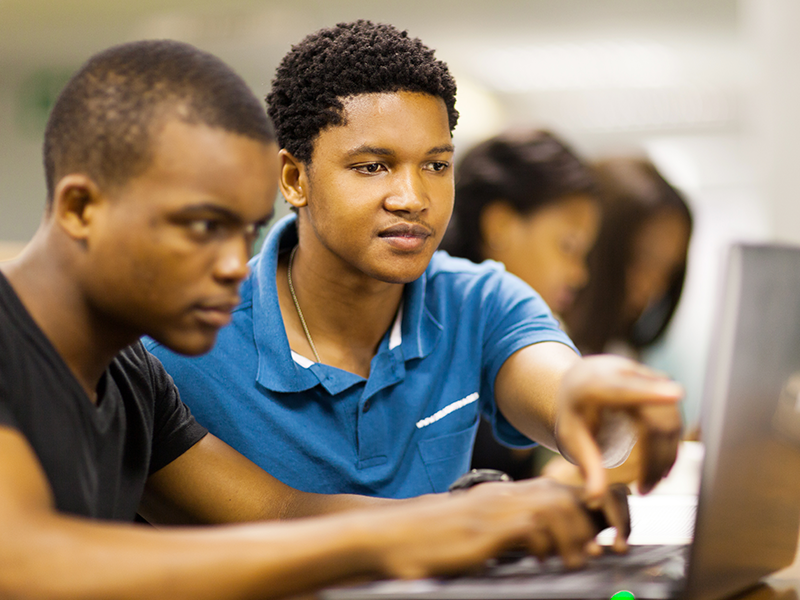
by Corey Burres | May 26, 2020
PRESS RELEASE: GCO signs on to federal policy recommendations to provide educational opportunity for all schoolchildren
PEACHTREE CORNERS—The Georgia Center for Opportunity (GCO) announced today that it has signed on to policy recommendations to Congress that would expand educational access for more schoolchildren. The recommendations were jointly issued by GCO in partnership with other nonprofit think tanks across the U.S.
“The education landscape in Georgia will look vastly different this summer and fall, and we need to include all schools—and as a result all students—in our planning to ensure full educational equity,” said Buzz Brockway, GCO’s vice president of public policy. “While the lion’s share of support will go to Georgia’s 1.7 million students enrolled in traditional public schools, we can’t afford to neglect the over 315,000 students attending public charter, private, and home schools. These recommendations would have the greatest impact on low-income, working-class, and impoverished families, the very ones who need help the most.”
The recommendations include:
Enabling educational access and providing direct support to families:
Expand the use of 529 education accounts, support education through Emergency Education Savings Accounts or microgrants, and create a “student checkup” account that provides funds to parents for use over the summer for tutoring, testing, or other expenses to foster academic progress.
Supporting private schools:
Provide a federal tax credit for donations directly to private schools, provide a temporary refundable tax credit to help low-income families continue paying private school tuition, and create equitable funding sharing requirements between traditional public schools and non-traditional options (such as public charter and non-public schools).
Improving Internet access for vulnerable families:
Address online equity issues for low-income and rural communities by expanding E-rate and providing incentives to spur the broadband infrastructure.
Supporting teachers and the transition to distance learning:
Provide a microgrant for teachers to learn and develop distance learning.
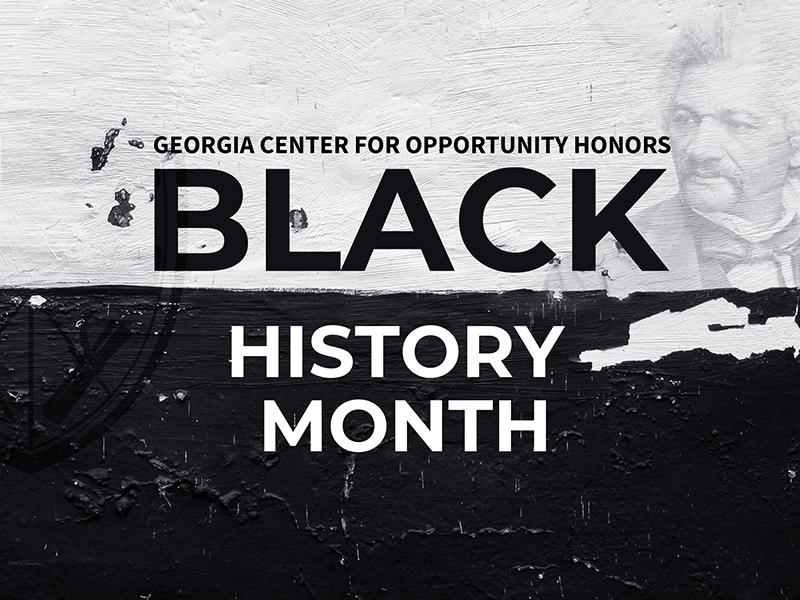
by Randy Hicks | Feb 4, 2020
Recognizing Black History Month Is About Recalling Where We Came From

Seeing Black History Month through the eyes of 114-year-old Gertrude Baines
To celebrate Black History Month, let me take you back to November 2008.
The morning of the election—an election that would make history with the victory of Barack Obama, first African-American president in U.S. history—a small headline appeared on websites and in papers: “At 114, a daughter of former slaves votes for Obama.”
 Gertrude’s story really typified the reasons why. She was born less than thirty years after the conclusion of the Civil War, during the presidential administration of Grover Cleveland—at a time when African Americans were often kept from voting and subjected to unspeakable abuses. Her life had overlapped those of many of America’s (and history’s) great black leaders, like Frederick Douglass (he died about six weeks prior to Baines’ first birthday), W.E.B. Dubois, Booker T. Washington, George Washington Carver, and Martin Luther King, Jr.
Gertrude’s story really typified the reasons why. She was born less than thirty years after the conclusion of the Civil War, during the presidential administration of Grover Cleveland—at a time when African Americans were often kept from voting and subjected to unspeakable abuses. Her life had overlapped those of many of America’s (and history’s) great black leaders, like Frederick Douglass (he died about six weeks prior to Baines’ first birthday), W.E.B. Dubois, Booker T. Washington, George Washington Carver, and Martin Luther King, Jr.
She had lived through some important milestones in the fight for civil rights and equal opportunity. She was 53 when Jackie Robinson jogged onto the diamond at Ebbets Field in Brooklyn, 60 when the Brown v. Board of Education ruling was handed down, and 61 when Rosa Parks refused to give up her seat on a Montgomery bus.
She has also been witness to some of the most shameful moments in our nation’s history. She was 61 when 14-year-old Emmett Till was brutally murdered in Money, Mississippi, 69 when four black children lost their lives in a Birmingham church bombing, and just two days shy of her 74th birthday when Dr. King was assassinated. (Please take note: those are just the high profile abuses she witnessed as a senior citizen.)
Gertrude’s story reminds me of how exceptional and amazing American democracy is. How many other countries have elected ethnic minorities to lead them? Generally speaking, elsewhere in the world, such transitions don’t happen without military coups and civil wars. The fact is, America is exceptional in large part because of the many people of color who helped rise above and form it that way.

Can you imagine Gertrude’s parents ever having said to her, “One day you will cast your vote for a black man who will win the presidency”? I suspect they never could have imagined it. And yet, on November 4th of 2008, Barack Obama became America’s president-elect. And it was not by court order, legislative edict or military force, but by popular vote. The majority of American voters—black, white, Asian, Hispanic, etc.—chose him to be their leader.
The fact is, America is exceptional.
It’s worth pointing out that this is a trajectory we have been on for decades as evidenced by the fact that people of various ethnic backgrounds have been elected or appointed to become governors, lawmakers, cabinet secretaries, judges and so on.
We celebrate that this Black History Month.
Admittedly, I’m just a white guy from Orange County, California, now living happily in Atlanta. My ability to understand the plight of minorities in the U.S. is obviously limited. But I am a human. And I am able to recognize suffering, heartache and inhumanity when I see it. So I am also able to recognize both the source and manifestation of profound joy felt by millions of African Americans – and people of African descent worldwide—in seeing Barack Obama elected to the White House in 2008.
While that was a great moment, so much more remains to be done to ensure that everyone, of every color and ethnic background, has a legitimate opportunity to flourish. We’ve come a long way—but we have a long way still to go.
Gertrude Baines passed away in September 2009 at the remarkable age of 115—at the time, the oldest living person in the world. What a lifetime of progress she saw toward the realization of the American ideal—laid out (but not always carried out) by our visionary and courageous founders: “We hold these truths to be self-evident, that all men are created equal, that they are endowed by their Creator with certain unalienable Rights…”
And that’s why we at GCO we will be celebrating those who have contributed so much to our nation—those from the African-American community who, like Gertrude, remind us of what is great about this country.
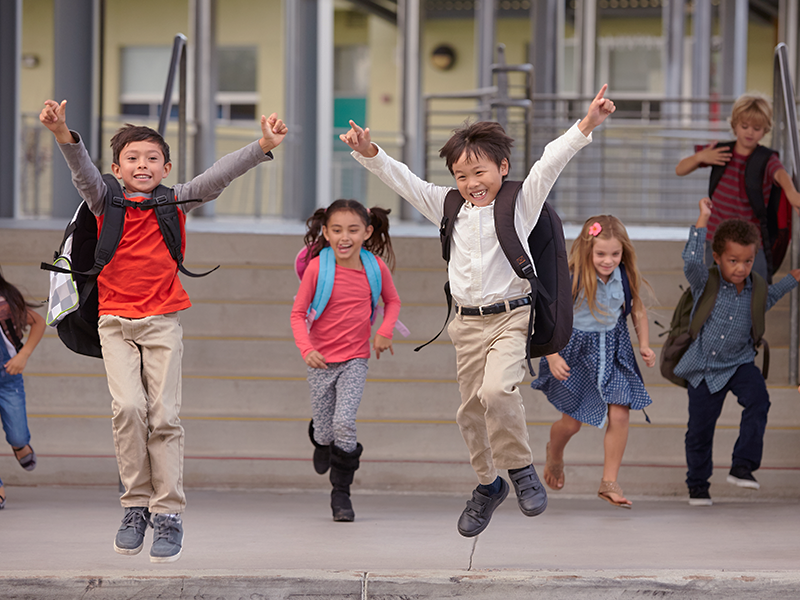
by David Bass | Aug 27, 2019
Education designed for everyone and every learning need
Every day we are greeted by options—from the many products available through local grocery stores to the millions of apps available on smartphones. So, why would we expect anything different in education?
As Georgia’s schoolchildren head back to class this month, it’s a question worth pondering: Should education be a one-size-fits-all issue? For many students, their locally zoned and assigned school is indeed the best option. But other families need alternative options to help their children succeed.
Students in poverty
Think of students like those in Atlanta’s 30314 zip code, one of the poorest and most crime-ridden areas in the country.
This small slice of Atlanta accounts for six out of every 10 murders in the city. In just this one ZIP Code alone, about 40 percent of people live below the poverty line. And the median household income is just $25,000 a year.
While we all want to see public schools improve in this area, that cause will take years if not decades. Meanwhile, more and more students will fall behind and, in many cases, into a life of crime.
For students in the 30314, we can’t afford to wait another day, another week, another month, or another year. They need options right now—options like Bright Futures Academy, a school specifically designed to give kids a solid shot at getting the good education they need to thrive in life and succeed as adults.
Students with special needs
Or take the example of students with special needs. In many instances, local schools are ill-equipped to handle the unique needs of these students. That was certainly the case for Cammie Alkire and her daughter, Savannah, who has had severe learning disabilities from an early age.
Cammie calls Savannah “her million-dollar child” because that’s how all of the medical care and therapies have cost over the years.
Although the Alkires support the local public school system (Cammie is a graduate of Forsyth County Public Schools), they weren’t willing to subject Savannah to another year of bullying in order to qualify for Georgia’s Special Needs Scholarship.
Today, Savannah is enrolled in a small private Christian school that’s meeting her unique needs. But the Alkires struggle each month to meet the cost of her care entirely on their own.
“These are the kids who fall through the cracks. They get bullied. They turn out to be cutters. They are emotionally and mentally struggling, but not screaming loud enough to hear. And our government refuses to extend any type of financial help to these parents,” Cammie shared with us.
A way forward
Every child is different. That’s why we come alongside families to support the best possible choices for their children, rather than pigeonhole them into only one choice.
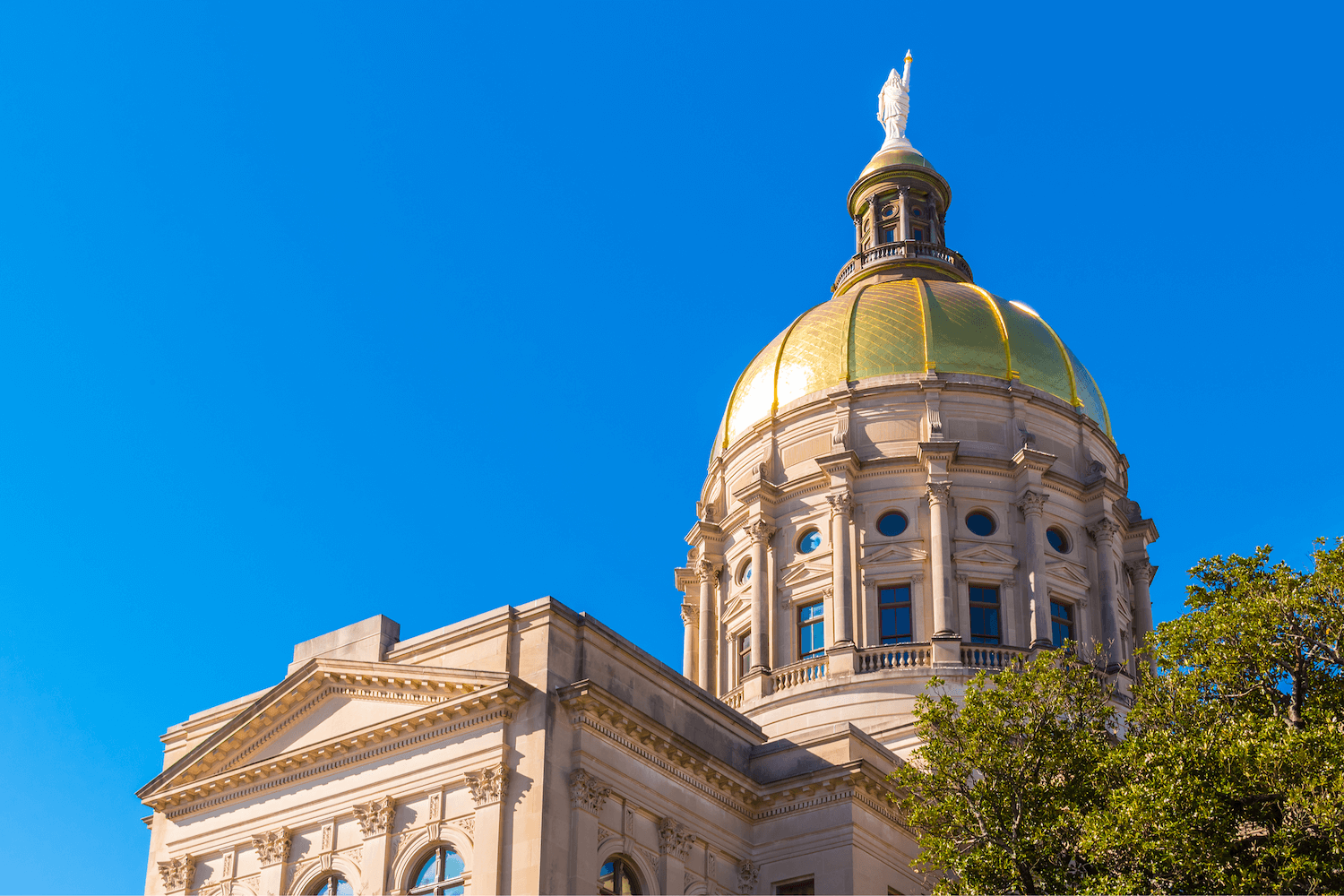
by David Bass | Jun 3, 2019
As the dust settles on another Georgia legislative session, we are pleased to report that the overall results for bills that GCO worked on to achieve passage were positive and encouraging.
Education Opportunities Expand Once Again
For starters, in the education arena we collaborated with key legislators to put into action House Bill 787, which had been approved by the legislature in the previous session. This new law creates equitable facilities funding for charter schools—allowing them to receive funds for their facilities on par with those given to traditional public schools.
Job Licensing Reform
On the employment front, our team successfully worked to pass a key piece of occupational licensing reform legislation. Now, people who get behind on their student loan payments won’t risk losing their occupational licensing—helping to ensure that more Georgians will be able to get a good job and keep it after completing their education.
Removing The Welfare Cliff of Healthcare
On welfare reform, we worked with Governor Brian Kemp’s administration to move forward healthcare waivers for Georgia. This crucial step toward full welfare reform would remove built-in benefit cliffs while adding work requirements for public assistance. Ultimately, this helps our fellow Georgians break free from governmental dependency and lead renewed lives of dignity and purpose.
We Are Just Getting Started
While we are proud of these successes, there’s still much work to be done in the next legislative session, particularly in the educational arena. Unfortunately, lawmakers fell short of passing Educational Savings Accounts (ESAs) this year. However, the good news is that we came closer than ever to success—and we’re optimistic that ESAs will become a reality next year. In fact, the high level of co-sponsor support from Governor Kemp’s floor leaders signals that this important issue will likely return for consideration in the next legislative session.
When it comes to ESAs, the stakes are high for thousands of Georgia students and their families. Not only would ESAs help parents like Katie Gonzalez—a mother of seven adopted children, including six with special needs—they would offer much-needed flexibility and assistance to students from low-income families, those adopted from foster care, children of active duty military stationed in Georgia, students with an Individualized Education Program, and those with a documented history of being bullied.
Looking Ahead
Looking ahead to 2020, GCO will continue to work toward implementing common-sense reforms on not just ESAs, but also in welfare and occupational licensing to ensure that every Georgian has the opportunity to flourish through a great education, steady employment, and healthy family life. The bottom line is that we are optimistic that the legislative successes coming out of the 2019 session will translate into passage of more key legislation next year.
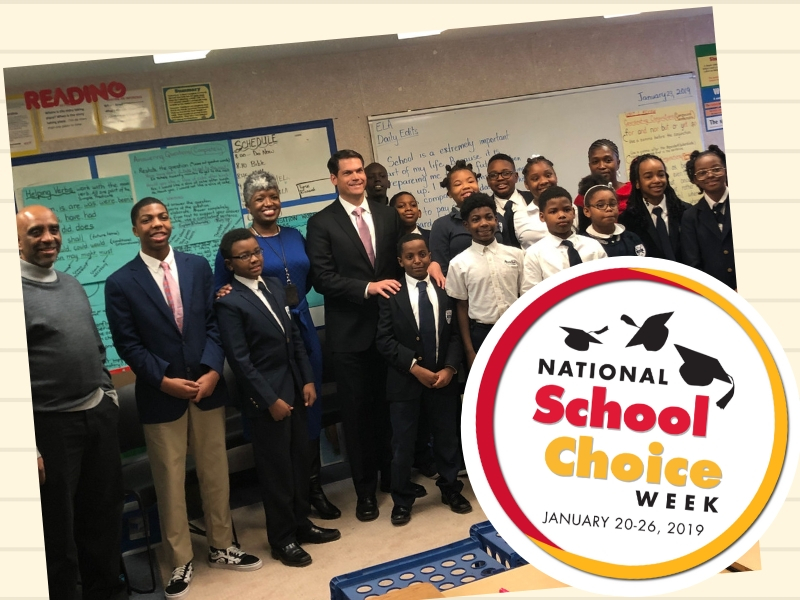
by Georgia Center for Opportunity | Jan 24, 2019
This week marks National School Choice Week, a program that began in 2011 and has rapidly grown across the country highlighting the benefits and need for more school choice options. Lt. Gov. Duncan is leading the state’s celebration at Atlanta Youth Acadamy in Southeast Atlanta by talking with students and parents yesterday about the importance of education, and how remaining focused on expanding school choice opportunities to students statewide is one of his top priorities.
“One of the most important things I can do every day as Lt. Gov. is remember one of the best gifts we can give a child in this state is a quality k-12 education,” stated Lt. Gov. Duncan as he spoke with a classroom of fifth graders and parents. “I want parents to know that and want them to see when we make laws, or adjust things in the laws, and create new policies we realize it is centered around the kids.”
The school is located near the federal prison, and the students’ median household income is about $23,000 a year. Fighting to overcome the neighborhood statistics, 62 percent of the students participate in Georgia’s tax credit scholarship program, and 100 percent of the students have graduated and gone on to postsecondary education.
The tax credit scholarship program has been wildly successful reaching the program’s cap within a matter of days for consecutive years. Lawmakers expanded the program last year by doubling the cap to $100 million starting in 2019.
A quality education is key. It provides a primary path for breaking cycles of poverty. GCO has played a crucial role in bringing real educational choice to upwards of 250,000 students and counting through Tax-Credit Scholarships, Special Needs Scholarships, and charter schools. As we move forward in the legislative session, we will continue to fight to expand Georgia’s current programs and to create education opportunity by pushing for the adoption of Education Scholarship Accounts.
Our work isn’t done until all of Georgia’s children can access the educational options that allow them to achieve the American Dream.




 Gertrude’s story really typified the reasons why. She was born less than thirty years after the conclusion of the Civil War, during the presidential administration of Grover Cleveland—at a time when African Americans were often kept from voting and subjected to unspeakable abuses. Her life had overlapped those of many of America’s (and history’s) great black leaders, like Frederick Douglass (he died about six weeks prior to Baines’ first birthday), W.E.B. Dubois, Booker T. Washington, George Washington Carver, and Martin Luther King, Jr.
Gertrude’s story really typified the reasons why. She was born less than thirty years after the conclusion of the Civil War, during the presidential administration of Grover Cleveland—at a time when African Americans were often kept from voting and subjected to unspeakable abuses. Her life had overlapped those of many of America’s (and history’s) great black leaders, like Frederick Douglass (he died about six weeks prior to Baines’ first birthday), W.E.B. Dubois, Booker T. Washington, George Washington Carver, and Martin Luther King, Jr.



